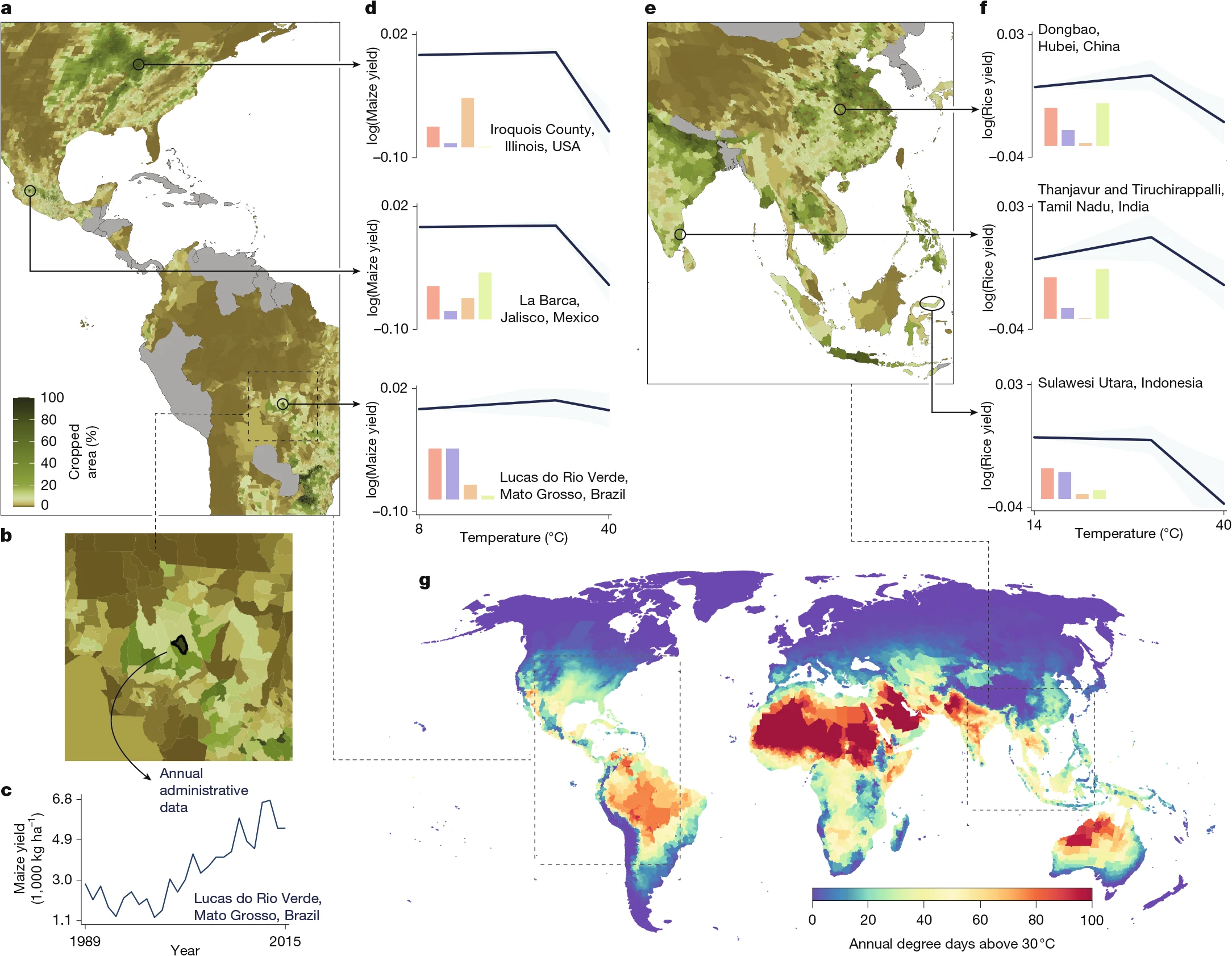Climate change threatens global food production, but there’s uncertainty about how much adaptation can mitigate these impacts. Even in well-studied systems like U.S. agriculture, some analyses suggest that adaptation will be widespread and minimize damages, while others predict limited adaptation and significant losses. Global scenario models indicate adaptation could meaningfully affect productivity, but empirical data on the extent of real-world adaptation at a global scale have been lacking.
This study uses longitudinal data on six major staple crops across 12,658 regions—covering about two-thirds of global crop calories—to empirically estimate adaptation effects. We find that global production declines by approximately 5.5 × 10¹⁴ kcal per year for each 1°C increase in global mean surface temperature (equivalent to 120 kcal per person per day, or 4.4% of recommended daily intake; P < 0.001).
Projections suggest that adaptation combined with income growth could offset 23% of potential losses by 2050 and 34% by 2100 under a moderate emissions pathway, though substantial losses persist for most crops aside from rice. Interestingly, while many studies emphasize disproportionate harm to low-income regions, our results indicate that significant impacts will also occur in current major production zones—‘breadbaskets’ with relatively favorable climates that have not yet required extensive adaptation. Low-income regions still face significant losses as well. The findings highlight the scale of innovation, land-use change, or additional adaptation measures that may be necessary to secure global food supplies under climate change.
Citation
Hultgren, A., Carleton, T., Delgado, M., Gergel, D. R., Greenstone, M., Houser, T., Hsiang, S., Jina, A., Kopp, R. E., Malevich, S. B., McCusker, K. E., Mayer, T., Nath, I., Rising, J., Rode, A., & Yuan, J. (2025). Impacts of climate change on global agriculture accounting for adaptation. Nature, 642, 644–652. https://doi.org/10.1038/s41586-025-09085-w:contentReference[oaicite:0]{index=0}

No comments:
Post a Comment